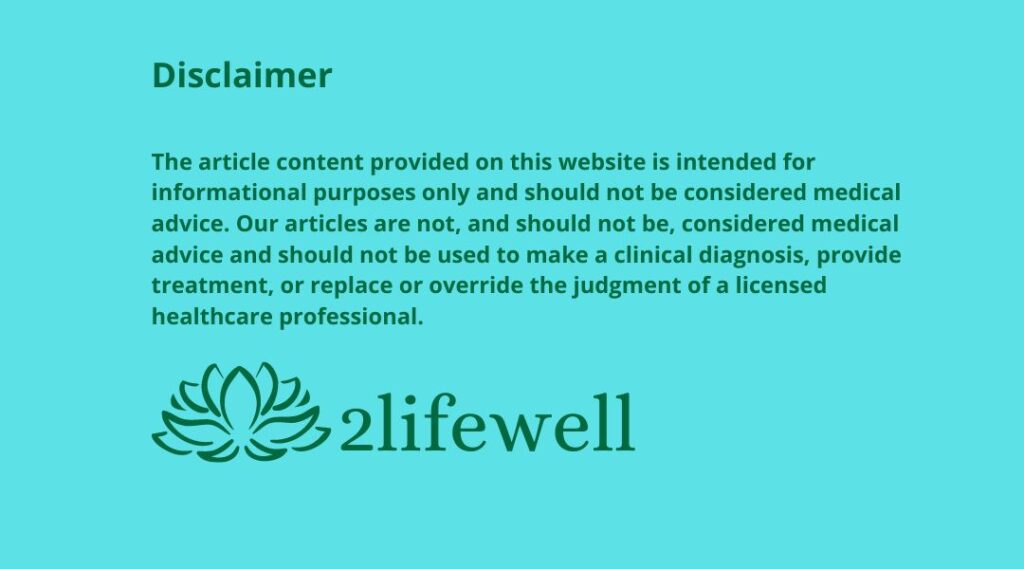Cultivating Positive Relationships for Mental Fulfillment
In the journey towards mental fulfillment, few things are as impactful as the quality of our relationships. Positive relationships have the power to uplift us, support us through challenges, and bring joy and meaning to our lives. Whether with family, friends, romantic partners, or within our communities, nurturing healthy and fulfilling connections is essential for our mental well-being.
In this comprehensive guide, we will explore the importance of cultivating positive relationships for a life of mental fulfillment. From understanding the dynamics of healthy relationships to fostering empathy, compassion, and gratitude, each section will delve into key principles and practical strategies for nurturing positive connections in various aspects of our lives. Let us embark on this journey together, as we discover the transformative power of positive relationships in fostering greater mental well-being and fulfillment.
The Importance of Positive Relationships in Mental Well-being

Positive relationships play a vital role in our mental well-being, influencing our emotions, thoughts, and behaviors in profound ways. In this section, we will explore the importance of positive relationships and their impact on our overall mental health. From providing emotional support to fostering a sense of belonging, we will examine how healthy connections contribute to greater happiness, resilience, and fulfillment in our lives.
Understanding the Dynamics of Positive Relationships
Building and maintaining positive relationships requires an understanding of the dynamics at play. In this section, we will explore the key elements that contribute to healthy and fulfilling connections. From effective communication and trust-building to setting boundaries and resolving conflicts, we will examine the foundational principles of positive relationships and how to cultivate them in our interactions with others.
Building Strong Foundations: Communication and Trust
Effective communication and trust are the cornerstones of any positive relationship. In this section, we will explore strategies for building strong foundations of communication and trust in our relationships. From active listening and expressing vulnerability to honoring commitments and demonstrating reliability, we will learn how to foster open, honest, and trusting connections with those around us.
Nurturing Empathy and Compassion in Relationships
Empathy and compassion are essential qualities that deepen our connections with others and foster greater understanding and intimacy. In this section, we will explore the importance of nurturing empathy and compassion in our relationships. From practicing active empathy to showing kindness and understanding, we will learn how to cultivate greater empathy and compassion in our interactions with others, enriching our relationships and enhancing our mental well-being.
The Role of Boundaries in Healthy Relationships
Setting and respecting boundaries is crucial for maintaining healthy and fulfilling relationships. In this section, we will explore the importance of boundaries in creating safe and respectful interactions with others. From identifying our own boundaries to communicating them effectively and respecting the boundaries of others, we will learn how to establish healthy boundaries that promote mutual respect and understanding in our relationships.
Cultivating Positivity: Gratitude and Appreciation in Relationships

Positivity is a powerful force that strengthens our connections with others and enhances our mental well-being. In this section, we will explore the role of gratitude and appreciation in cultivating positive relationships. From expressing gratitude for the people in our lives to showing appreciation for their contributions, we will learn how to foster a culture of positivity and appreciation in our relationships, enriching our interactions and deepening our connections with others.
Fostering Emotional Intimacy and Connection
Emotional intimacy is the foundation of deep and meaningful relationships, allowing us to connect with others on a profound level. In this section, we will explore strategies for fostering emotional intimacy and connection in our relationships. From sharing our thoughts and feelings openly to offering support and validation, we will learn how to cultivate deeper emotional bonds with those we care about, enhancing our sense of closeness and connection.
Conflict Resolution: Strategies for Maintaining Harmony
Conflict is inevitable in any relationship, but how we navigate and resolve it can determine the health and longevity of our connections. In this section, we will explore strategies for effectively resolving conflicts and maintaining harmony in our relationships. From practicing active listening and empathy to seeking compromise and finding common ground, we will learn how to navigate conflicts with grace and understanding, preserving the integrity and strength of our connections.
The Impact of Negative Relationships on Mental Health
Negative relationships can have a detrimental impact on our mental health, draining our energy, and undermining our well-being. In this section, we will explore the signs of negative relationships and their effects on our mental health. From toxic friendships and abusive dynamics to codependent patterns and dysfunctional family dynamics, we will learn how to recognize and address negative relationships, prioritizing our mental health and well-being.
Letting Go: When Relationships No Longer Serve Us
Sometimes, despite our best efforts, relationships may reach a point where they no longer serve our highest good. In this section, we will explore the importance of letting go of relationships that no longer align with our values and well-being. From recognizing when it’s time to move on to navigating the process of letting go with grace and compassion, we will learn how to release relationships that no longer serve us, making space for new connections and opportunities for growth.
The Power of Forgiveness in Healing Relationship Wounds
Forgiveness is a transformative practice that can heal relationship wounds and free us from resentment and pain. In this section, we will explore the power of forgiveness in restoring harmony and healing in our relationships. From practicing self-forgiveness to offering forgiveness to others, we will learn how to release the burden of past hurts and cultivate greater compassion and understanding in our interactions with others.
Cultivating Self-Compassion in the Context of Relationships
Self-compassion is essential for nurturing healthy and fulfilling relationships, as it allows us to offer ourselves kindness and understanding in moments of struggle and difficulty. In this section, we will explore the importance of cultivating self-compassion in the context of relationships. From practicing self-care and setting boundaries to honoring our needs and priorities, we will learn how to prioritize our well-being and cultivate greater self-compassion in our interactions with others.
Mindful Relationships: Being Present with Our Loved Ones
Mindfulness is a powerful practice that enhances our presence and connection with others, deepening our relationships and enriching our lives. In this section, we will explore the practice of mindful relationships and its benefits for our mental well-being. From being fully present with our loved ones to practicing active listening and non-judgmental awareness, we will learn how to cultivate greater mindfulness in our interactions, fostering deeper connections and greater intimacy with those we care about.
Celebrating Diversity: Embracing Differences in Relationships
Diversity enriches our relationships, bringing unique perspectives, experiences, and strengths to our connections with others. In this section, we will explore the importance of celebrating diversity and embracing differences in our relationships. From valuing diverse viewpoints to honoring cultural traditions and identities, we will learn how to create inclusive and welcoming spaces that promote understanding, respect, and appreciation for the richness of human diversity.
Strengthening Family Bonds for Greater Mental Well-being
Family bonds are among the most significant and enduring relationships in our lives, shaping our identity, values, and sense of belonging. In this section, we will explore strategies for strengthening family bonds and enhancing our mental well-being. From spending quality time together to resolving conflicts and communicating effectively, we will learn how to nurture healthy and supportive family relationships that promote greater happiness, resilience, and fulfillment.
The Influence of Friendships on Mental Fulfillment
Friendships are essential for our mental well-being, providing companionship, support, and belonging. In this section, we will explore the influence of friendships on mental fulfillment. From cultivating meaningful connections to fostering trust and loyalty, we will learn how to nurture positive friendships that enrich our lives and contribute to our overall happiness and well-being.
Romantic Relationships: Balancing Independence and Togetherness
Romantic relationships offer opportunities for growth, intimacy, and connection, but they also require balance and compromise. In this section, we will explore strategies for balancing independence and togetherness in romantic relationships. From maintaining individual interests and goals to prioritizing quality time together and fostering emotional intimacy, we will learn how to create harmonious and fulfilling romantic relationships that support our mental well-being and personal growth.
Building a Supportive Social Network for Mental Health
A supportive social network is a valuable resource for our mental health and well-being, providing us with a sense of belonging, validation, and support. In this section, we will explore the importance of building a supportive social network and strategies for cultivating meaningful connections. From joining community groups and volunteering to reaching out to friends and family for support, we will learn how to create a strong support system that enhances our resilience and promotes greater mental well-being.
The Role of Community in Fostering Connection and Belonging
Community connections are essential for fostering a sense of connection, belonging, and purpose in our lives. In this section, we will explore the role of community in promoting mental well-being and fulfillment. From participating in community events and activities to volunteering and giving back, we will learn how to cultivate a sense of belonging and connection within our communities, contributing to our overall happiness and well-being.
Sustaining Positive Relationships: Strategies for Long-Term Success
Sustaining positive relationships requires ongoing effort, commitment, and communication. In this final section, we will explore strategies for maintaining and nourishing positive relationships for long-term success. From prioritizing quality time together to expressing appreciation and gratitude regularly, we will learn how to sustain healthy and fulfilling connections with others, enriching our lives and contributing to our overall mental well-being and happiness.
Books:
- “The Relationship Cure: A 5 Step Guide to Strengthening Your Marriage, Family, and Friendships” – John Gottman-https://amzn.to/45xNMoD
- Gottman, a leading relationship researcher, offers a practical guide to improving the quality of personal relationships and promoting mental well-being.
- “Social: Why Our Brains Are Wired to Connect” – Matthew D. Lieberman-https://amzn.to/45s48PE
- Lieberman explores how neuroscience reveals the importance of social connections for mental health and personal fulfillment.
- “Hold Me Tight: Seven Conversations for a Lifetime of Love” – Sue Johnson-https://amzn.to/3z8V1r5
- Johnson, creator of Emotionally Focused Therapy, discusses how to strengthen emotional bonds in intimate relationships to achieve a fulfilling life.
- “The Art of Communicating” – Thich Nhat Hanh-https://amzn.to/3KTrP9X
- Thich Nhat Hanh offers insights into how mindful communication can strengthen relationships and promote inner peace.
- “Connected: The Surprising Power of Our Social Networks and How They Shape Our Lives” – Nicholas A. Christakis e James H. Fowler-https://amzn.to/4c57Wsv
- This book explores how social media influences our behavior and well-being, highlighting the importance of positive relationships.
Scientific articles:
- “The influence of positive affect on social relationships” – Lyubomirsky, King, & Diener (2005)
- This article investigates how positive affect can strengthen social relationships and contribute to overall well-being.
- “Social relationships and health” – House, Landis, & Umberson (1988)
- Seminal review exploring the link between the quality of social relationships and mental and physical health.
- “The role of social relationships in adaptation to chronic illness and disability” – Cohen & Wills (1985)
- Examines how social relationships can act as a resilience factor for people facing chronic illness.
- “Perceived social support and mental health: A meta-analytic review” – Wang, Mann, Lloyd-Evans, Ma, & Johnson (2018)
- Meta-analysis investigating the relationship between perceived social support and mental health, highlighting the benefits of positive relationships.
- “Relationship quality and emotional health: The role of positive relationships in personal well-being” – Diener & Seligman (2002)
- Analyzes how the quality of interpersonal relationships is directly linked to emotional well-being.
Book Chapters:
- “Positive Psychology in Practice” – Chapter on positive relationships by Shelly Gable and Jonathan Haidt (2004)
- Discusses the science of positive relationships and how they contribute to happiness and personal fulfillment.
- “The Oxford Handbook of Positive Psychology” – Chapter on the importance of social relationships by Harry Reis and Shelly Gable (2009)-https://amzn.to/4et8fiI
- Offers a comprehensive overview of how positive social relationships impact mental health and well-being.
- “Handbook of Social Support and the Family” – Chapter on the role of social support in mental health by Gregory R. Pierce, Barbara R. Sarason, and Irwin G. Sarason (1996)
- Explores the importance of social support in the family context and its effects on emotional well-being.

